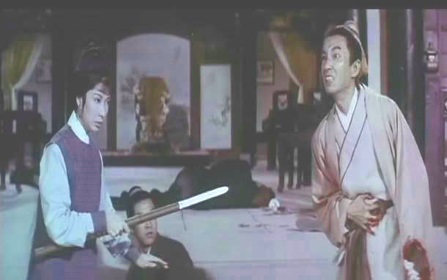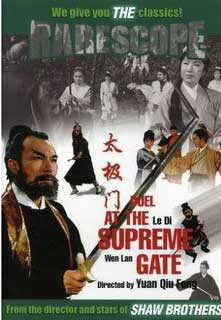

By 1968 both Betty Lo Tih’s (Le Di) career and
personal life were at a crossroad. Her glory days at Shaw were in the past
and though still popular she never received her previous acclaim while with
the Cathay studio. A year previously along with her brother actor Kelly Lai
Chen and director Yuan Quifeng, Betty had formed the production company Golden
Eagle which used Cathay as their distribution arm. Their films though were
not particularly successful and Betty found herself in the uncomfortable
position of having to adapt to current trends by becoming a wuxia heroine
in this film and Vagabond Swordsman. It wasn’t really a good match for this
actress best known for her lush romantic or mannered comic films and she
announced in 1968 that she would no longer perform in these types of films
and would also drop out as a shareholder in Golden Eagle and would only be
a contract actress for them.
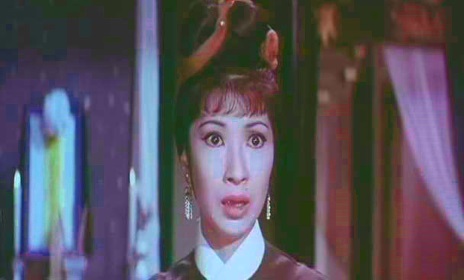
Her personal life was in flux as well. After five
years of marriage and a child, she divorced fellow Cathay actor Peter Chen
in 1967. His extramarital activities had become well known to her and the
subject of much speculation and gossip in the media. She received another
cruel blow when she lent money to an old friend and actor Kao Yuen and he
absconded with it leaving her in financial distress (perhaps partially explaining
her decision to sell her shares of Golden Eagle). A few months later on December
27 Betty Lo Tih was dead from an overdose of sleeping pills – whether intentional
or accidental will never be known for sure.
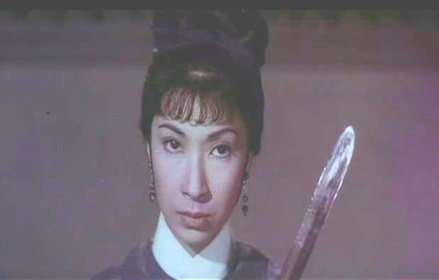
Since her death her legend has only grown as one
of Hong Kong’s most popular and beautiful actresses - nicknamed “Classic Beauty”
in her very first Shaw film Magic Touch in 1958 for her genteel composure
and her long oval face, prominent nose and beguiling almond shaped eyes.
She was born in Shanghai in 1937 during the Japanese invasion and her father
was killed in an air raid while Betty was still in her mother’s womb. Her
mother died when Betty was still a child and she was brought up by her grandparents.
Her grandfather owned a Chinese Opera theater and her love for show business
was instilled early on. Like so many other Hong Kong stars during the 1960’s,
her family moved to Hong Kong in 1949 to escape the Communist takeover. She
first joined up with the Great Wall film studio in 1953 at the age of seventeen
but her career at this studio never reached its potential and it wasn’t until
she signed up with the Shaw Brothers in 1958 that her career really took
off.
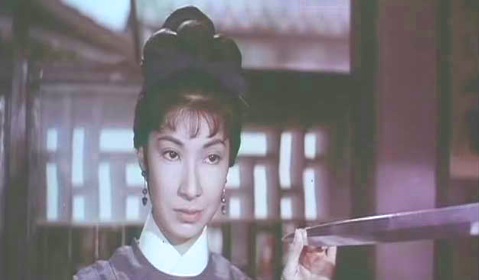
In 1960 she became a big star playing the ethereal
tragic Hsiao Chien in Enchanting Shadow but it was her role in the classic
Love Eterne in 1963 that cemented her legendary status. Love Eterne is simply
one of Hong Kong’s most popular films ever and her pairing with Ivy Ling
Po (who played the male character in this Huangmei opera) was revered by
the public. But not so much by Betty who felt that Ivy was getting too much
of the credit for the success of the film and that the Shaw’s were favoring
her. She swore never to work with Ivy again and so in 1964 she left Shaw
to work for their main Mandarin language competitor Cathay. Here she had
a solid career with films like A Debt of Blood and Darling, Stay at Home
but it never reached the heights of her years at Shaw Brothers. She was 31
when she died.
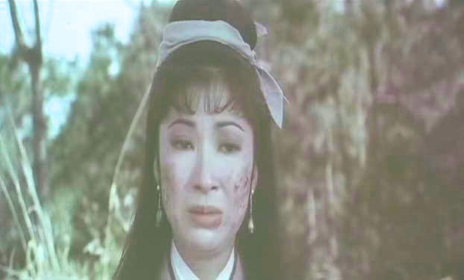
Duel at the Supreme Gate is a middling wuxia at
best. It has a good plot but it suffers from a plodding pace and a dearth
of much action until the final confrontation. She is a swordswoman in the
Supreme Gate clan. One night a thief steals the Golden Sword and the Magic
Mirror from the clan and when they track the thief down it turns out to be
Kuan Han Pin (played with evil laughing relish by Sek Kin) who sneers at
them before badly wounding their Master and doubles the insult by sneering
some more afterwards. Bin (Betty) is sent to the Southern Sky clan to obtain
a pill that may save the Master’s life. There she encounters Chee (a surprisingly
middle aged looking Zhang Yang who was male eye candy in many Cathay films
in the late 50’s) who is immediately smitten by her and follows her back to
the Supreme Gate.
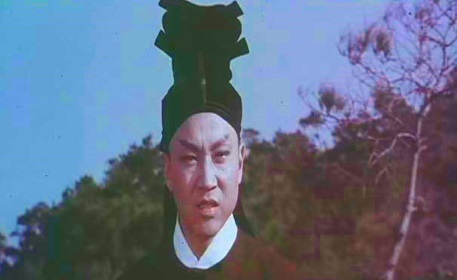
There Bin learns not only that the Master is dead
but that she is the daughter of Kuan and so is expelled from the clan – though
not before she saves their hides by fighting off Kuan’s student Tai Yong
(a barely recognizable Kelly Lai Chen). She is determined to recapture her
place at Supreme Gate so she pretends to join her father and steals back
the Golden Sword (why this is so valuable is never revealed) and the Magic
Mirror (basically a bright flashlight that temporarily blinds an opponent).
But she is set upon by her father and his Icy Press strike blinds her for
good. She retreats to the wilderness to live by herself but Chee follows
and sets up house with her - and begins to teach her how to fight blind –
she is a fast learner and soon can catch sharp objects thrown in her direction.
Word eventually comes that Supreme Gate is under attack and with her cane
sword in hand Bin sets out to right the wrongs in the world. As one might
expect, the action in the film is a bit clumsy with non-action actors in
action roles but Betty has her moments and no doubt she had some action training
at Shaw Brothers.
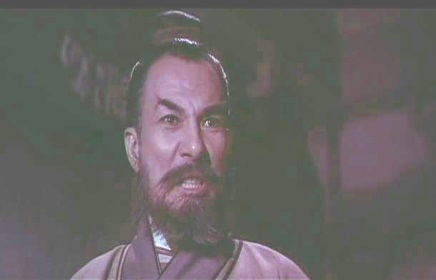
This DVD has been released by Rarescope – a sub-label under the now defunct BCI label but this is still available at various Internet sites. But be warned – don’t expect the restoration work that we have become used to with Celestial – the print is in fairly poor condition with lots of speckles and the night scenes are nearly impenetrable. Both English and Chinese subs are burnt on.
My rating for this film: 6.0
